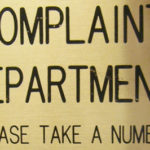In his recent book, Out of Babylon, Old Testament scholar Walter Brueggemann suggests how the 21st century church can be both relevant and resistant to the “empire philosophies” that shape global society. What’s your take on his ideas?
To understand Brueggemann’s book, you have to know something about its origins. It began when his editor brought his attention to a song with lyrics written by Em.mylou Harris, Daryl Hall and Jill Cunnliff, titled “Time in Babylon.” The song depicts our American culture of acquisition and materialism through the images of ancient Babylon. Comparing a culture to Babylon has a long and distinguished history, ranging from the prophetic scriptures of the Old Testament, to the book of Revelation in the New Testament, to the writings of Martin Luther, to contemporary music.
Focusing on the prophets of the exile, including Ezekiel and Jeremiah, Brueggemann identifies the themes of exile and restoration. While in exile in Babylon, God’s people counter the influence of the dominant culture of the Babylonian empire with their own traditions and the anticipation of restoration in Jerusalem. God calls them to resist the consuming values of the empire and to replace them with the life-giving values of their faith.
Resisting the ultimate values of Babylon
Brueggemann says in the time after the exile, biblical books like Ezra and Nehemiah take a different tack. They emphasize accommodation and resistance in relation to the empire. For example, Nehemiah accommodates himself to the Persian ruler, yet uses the ruler to rebuild Jerusalem, thereby resisting the ultimate values of the empire.
According to Brueggemann, this latter approach of accommodation and resistance seems most appropriate in our culture today. We live in a time in which our country is the world’s only superpower. In a sense, we have an empire. Some of the values of our empire run counter to our faith. They include materialism and militarism. In a sense, the symbol of Babylon is an appropriate one for our American culture.
I agree with Brueggemann’s ultimate points about our Christian response to our modern empire. In a way, they echo Christ’s prayer that we be in the world, but not of it (John 17:15-16). As Christ followers, we recognize we live in a culture that doesn’t reflect God’s values. Our purpose isn’t merely to withdraw, live in exile and create our own separate Christian community. Our purpose is to penetrate the world as salt and light, bringing about transformation.
Accomodation and resistance
When we use the approach of accommodation and resistance, we live out our faith in the midst of empire. We don’t seek to flee and start our own country. We work within the parameters of our setting. At the same time, we reject the values of empire. We reject living in pursuit of power, possessions and pleasure. We reject the empire’s call for ultimate loyalty and obedience.
Sign up for our weekly edition and get all our headlines in your inbox on Thursdays
To use Brueggemann’s examples, we live like Daniel, Shadrach, Meshach and Abednego in Babylon. Although we live within the realities of our empire, we resist its values through our faith.
Robert Prince, senior pastor
First Baptist Church
Waynesville, N.C.
If you have a comment about this column or wish to ask a question for a future column, contact Bill Tillman, consulting ethicist for “Right or Wrong?” at [email protected].














We seek to connect God’s story and God’s people around the world. To learn more about God’s story, click here.
Send comments and feedback to Eric Black, our editor. For comments to be published, please specify “letter to the editor.” Maximum length for publication is 300 words.